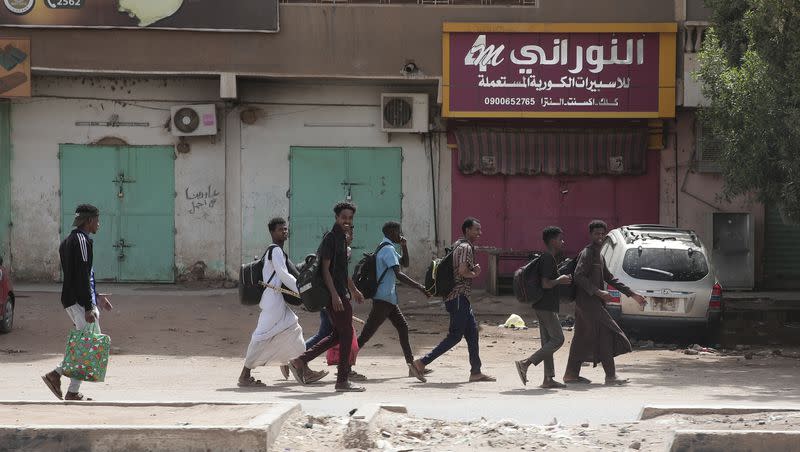The conflict in Sudan, explained

Residents of Khartoum, Sudan’s capital, have been dealing with the violence of rival generals fighting for control of the country for three days.
Millions of residents were forced to stay hidden inside their homes, “and doctors and hospitals were struggling to cope with casualties and get the supplies and staff members that they needed,” The New York Times reported.
At least 97 civilians have been killed in the crossfire — caught between battle frontlines.
Three major hospitals were between the frontlines and were struck, and one other hospital was evacuated, The Washington Post reported.
“We are on the brink of collapse of the entire health-care system,” Yasir Yousif Elamin, spokesman for the Sudan Doctors Union, told the Post. “Supplies are running very low — we issued an appeal asking for intravenous fluids for blood and medicines.”
What led to the fighting in Sudan?
The fighting began Saturday with paramilitary group Rapid Support Forces, led by Gen. Mohammed Hamdan Dagalo, fighting against the Sudanese Army, led by Gen. Abdel-Fattah Burhan — “a longstanding rivalry between Sudan’s two top generals who have been vying for dominance over the northeast African nation,” per the Times.
The leaders of both groups had signed a draft deal in December that explained a plan to provide leadership to residents in the country, but details of how power would be transferred and who would be in charge were unclear. Sudanese activists took issue with placing both groups on the same level and said the Rapid Support Forces should be integrated into the national forces, per the Post.
It’s unclear what escalated the fighting, and both sides blame the other for initiating the fight.
U.S. Secretary of State Antony Blinken called for a cease-fire and “a return to talks between the two warring factions,” NBC News reported.
“People in Sudan want the military back in the barracks. They want democracy. They want civilian-led government. Sudan needs to return to that path,” he told reporters Monday, per NBC News.

